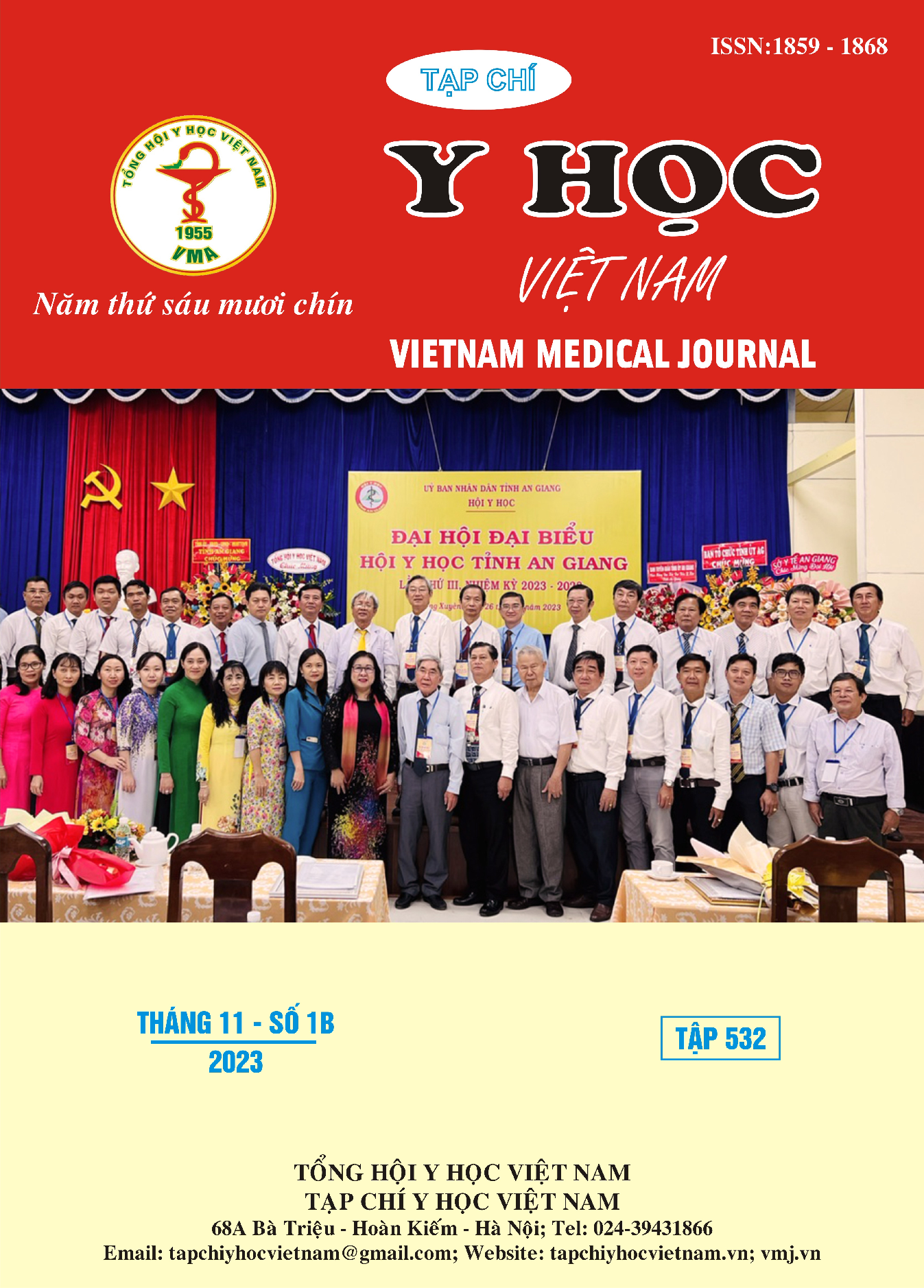RESEARCH THE RELATIONSHIP BETWEEN ERECTILE DYSFUNCTION AND DEPRESSION IN THE KIDNEY TRANSPLANT PATIENTS AT BACH MAI HOSPITAL
Main Article Content
Abstract
Research objectives: 1. To survey the percentage of erectile dysfunction and depresssion in the kidney transplant patients at Bach Mai hospital. 2. To evaluate the correlation between erectile dysfunction with depression and others related factors. Methods: Descriptive research, cross-sectional study on 95 kidney transplant patients managed at Nephro Urology and Dialysis Center, Bach Mai Hospital. Patients were interviewed directly, using a set of questions including the International Index of Erectile Function- 5 (IIEF-5) and the Patient Health Questionnaire-9 (PHQ-9). Results: The average age participants was 39.79 (9.9), with 65.3% of patients experiencing erectile dysfunction and 27.4% patients reporting depression. Erectile dysfunction and depression among participants have a statistically significant relationship. The rate of erectile dysfunction in the group of patients with moderate, mild and no depression being 100, 90.9 and 55.1% respectively. In addition, other factors related to erectile dysfunction in kidney transplant patients included obesity, smoking, hypertension and diabetes. Conclusions: We found that erectile dysfunction in kidney transplant patients is a common diseases (65.3%). Depression and erectile dysfunction are closely related in this group, which emphasizes the importance of evaluating depression in patients with erectile dysfunction after kidney transplantation.
Article Details
Keywords
depression, erectile dysfunction, kidney transplant patients.
References
2. Araujo AB, D. R. (1998). The relationship between depressive symptoms and male erectile dysfunction: cross-sectional results from the Massachusetts Male Aging Study. Psychosomatic Medicine, 60(4), 65-458.
3. Đức Giang, L. (2019, 10). Đánh giá tình trạng rối loạn cương dương trên bệnh nhân sau ghép thận tại Bệnh viện Việt Đức. Ha Noi, Viet Nam.
4. Shabsigh R, K. L. (1998). Increased incidence of depressive symptoms in men with erectile dysfunction. Adult Urology, 52(5), 52-848.
5. Wong JA, L. J. (2007, November). Prevalence and prognostic factors for erectile dysfunction in renal transplant recipients. Canadian Urological Association Journal, 1(4), 7-383. doi:10.5489/cuaj.4463. Gades NM, Nehra A, Jacobson DJ, McGree ME, Girman CJ, Rhodes T,
6. Araujo AB, D. R. (1998). The relationship between depressive symptoms and male erectile dysfunction: cross-sectional results from the Massachusetts Male Aging Study. Psychosomatic Medicine, 60(4), 65-458.
7. Thế Uy, D. (2015). Xác định tình trạng rối loạn cương dương và một số yếu tố liên quan ở bệnh nhân lọc màng bụng liên tục ngoại trú. Ha Noi, Viet Nam.
8. Văn Cường, N. (2017). Nghiên cứu tình trạng rối loạn cương dương và một số yếu tố liên quan ở bệnh nhân bệnh thận mạn giai đoạn cuối chưa điều trị thay thế. Ha Noi, Viet Nam.
9. Pourmand G, Alidaee MR, Rasuli S, Maleki A, Mehrsai A. (2004). Do cigarette smokers with erectile dysfunction benefit from stopping?: a prospective study. BJU International, 94(9), 3-1310.
10. Roberts RO, Lieber MM, Jacobsen SJ. (2005). Association between smoking and erectile dysfunction: a population-based study. American Journal of Epidemiology, 161(4), 51-346. doi:10.1093/aje/kwi052.


